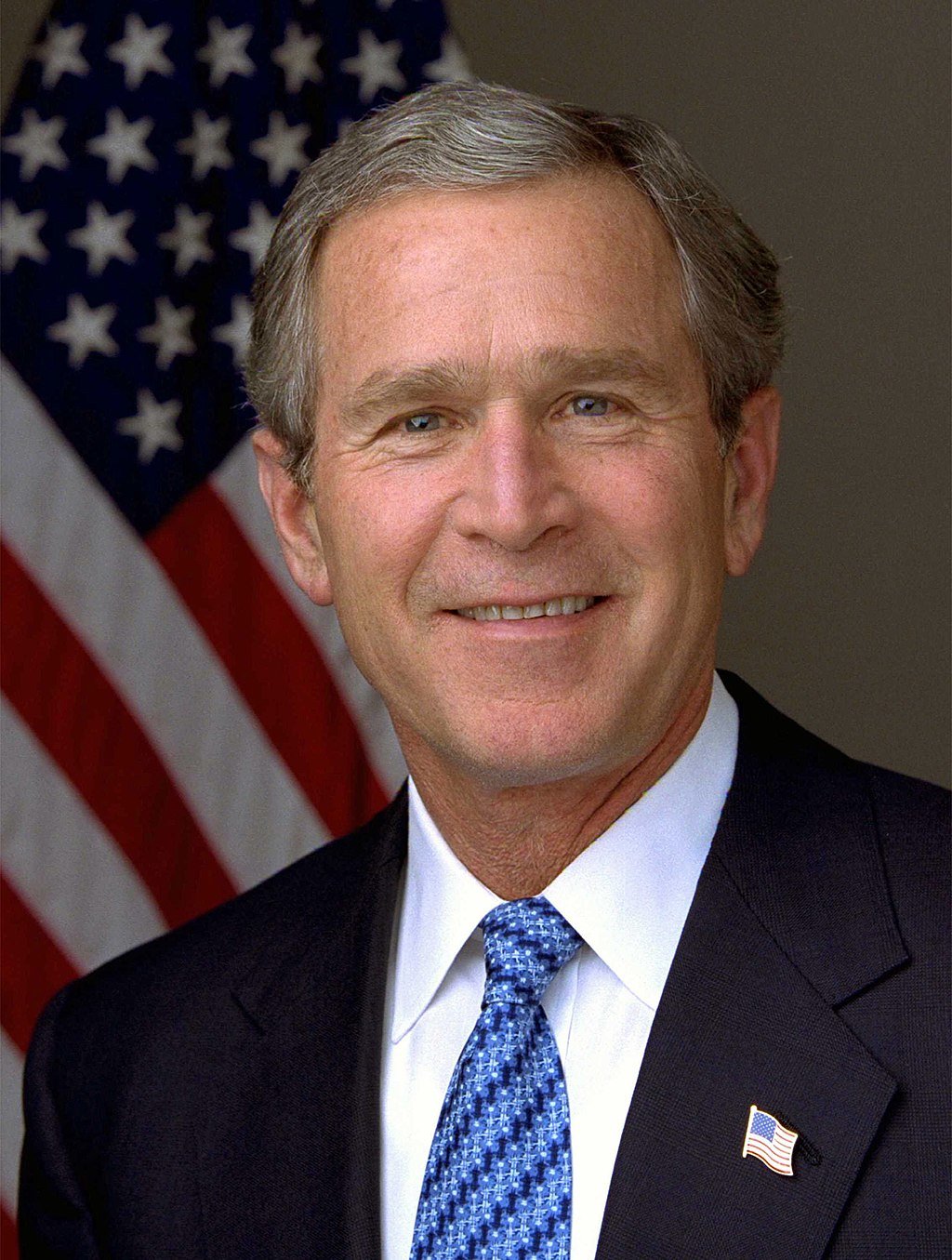Faith of our Fathers: The Theologies of the American Presidency
President George W. Bush
The Forty-Third President of the United States of America
Served from 2001-2009
Lived 1946-Present
Party: Republican
Denomination: United Methodist
President George W. Bush occupies the same position as only one other president (John Quincy Adams) in being the son of a former United States President. He came to power in 2000 after a hotly-contested election against Democratic Vice-President Al Gore that was ultimately decided by the United States Supreme Court. He would assume office in January of 2001 only to have the foundations of the country shaken 9 months later on September 11th, 2001 with the terror attacks that culminated in downed planes in New York, Washington D.C. and a field in Pennsylvania. The Twin Towers of the World Trade Center would crumble and the Pentagon would be severely damaged. This brazen attack on United States soil would lead to the War in Afghanistan that would last two decades and the War in Iraq that led to bitter divisions over the legitimacy of the reasons for entering Iraq. President Bush’s post-presidency would follow the trajectory of President Truman’s or Carter’s in history having a kinder view of his presidency than in the moment.
President Bush was raised Episcopalian but quickly fell away from the faith of his father and mother. In 1985 and in an act of desperation, then Vice-President George H. W. and First Lady Barbara Bush would coordinate a meeting with the younger Bush and the famed evangelist The Rev. Billy Graham. This experience would cause him to “dedicate his life to Christ” and identify as an Evangelical. Though the 9-11 attacks and subsequent pursuit of a “War on Terror” would lead to xenophobic sentiments and retaliatory actions, the President would stress his belief in the importance of acknowledging the good in people, especially Muslim-Americans who were becoming collateral damage to the conflict.
